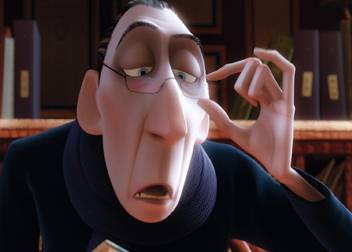The key insight for dealing with commenters, correctors, critics, interrupters, hecklers, trolls, and nitpickers

Yesterday, in a writing workshop I was conducting, a woman interrupted me to tell me my explanation of the concept of flow was incomplete and not quite right. And a commenter pointed out an embarrassing grammar mistake in the title of my post.
I had only one emotion in each case: gratitude.
People seem to be on hair triggers these days. The polarized political climate and competing teams of media cheerleaders are making it worse. If someone tells you that you are wrong, you are supposed to fire back with everything you have.
We will never get anywhere with the attitude that every criticism is an attack.
While I can’t fix the political discourse, I can deal with my own individual reaction to it. While I want to respond intelligently to each criticism, I also feel no obligation to be nice to people who are not nice to me. So, what’s a public writer and speaker to do?
When it comes to criticism in public spaces, like blogs, public Facebook posts, and speeches, I’ve learned to live by one question:
Would discussing this issue serve the audience?
Notice that this question has nothing to do with the politeness of the questioner. It does not focus on me. It does not focus on them. It focuses only on the audience.
If you raise a point of discussion in an online space and I feel that others would benefit from hearing my reaction to it, I’ll respond.
If I make a mistake and you point it out, I will correct it.
If you disagree with me in a workshop, we will discuss it, and I may bring in other audience members. Because many of them may be thinking what you were thinking, and that point deserves to be heard. (My speech today, on “Truth and Influence,” is likely to generate a lot of discussion like this.)
If you denigrate me personally, and there is a substantive point to discuss, I will discuss that. Because the audience deserves it.
But what about trolls and hecklers?
If your only point is that I am idiot, I’m not going to respond in an online space. I will ignore you, I will delete your comment, and if necessary, I will block you. Because the audience has no interest in discussing whether I am an idiot.
If you heckle me with valueless comments in a speech, I will ignore you. If you persist, I will make a smartass remark to undermine you, and if necessary, I’ll ask you to leave. Because the audience is not there to hear your self-serving vitriol.
If you ramble on about something that, in my judgment, nobody cares about, we will move quickly past your question — or I will pluck a nugget out that is of interest, and discuss that.
Criticism and ego
I am a very egotistical person. I think I have insights that are worth sharing. I have always felt this way about myself, and others will tell you that my egotism is a flaw in my personality.
The funny thing about that ego is that it is very robust. I feel very little need to defend it, since it is intrinsic to me and my ideas about who I am.
If you call me an idiot (and many have), I don’t really care because I know I’m not an idiot.
If you say that I am wrong, well, you’re welcome to your opinion. I probably disagree, but that’s fine.
If you point out an error or an inconsistency or raise an issue that shows my understanding is incomplete, my instinct is to learn more. I always want to know more. I am going to learn a lot more by listening to you than by attempting to defend myself.
The idea that I might be wrong about something is no threat to my ego. Smart people are wrong all the time.
By the way, this attitude comes in handy when you’re receiving critiques on your writing, as well. You’re in charge of content, your editors can help you improve it, and the only thing that matters whether the result is better for the audience.
It takes a great ego to stand in front of an audience, or write a book, or imagine that thousands of people want to hear what you have to say.
It takes a curious mind to listen to people’s reactions, identify which parts of those are valuable, and respond to them.
The ego and the curious mind are not incompatible.
Remember that the next time somebody tells you that you are wrong.
The best advice I ever received about dealing with trolls and nasty comments is responding with “Thanks for reading.” As long as it’s not racist or completely off topic, I just thank people for taking the time to read my ideas and comment on the post. Surprisingly, that usually shuts people up.
I feel the same way. (Also, “It take a great ego” in the paragraph fourth from last.)
Those are useful and insightful tips, Josh.
Regarding hecklers in a speech’s audience: If I heckle back, I give attention to them, and that’s exactly what they want. I also risk the audience siding against me. So here’s my favorite way to handle hecklers (or people who keep talking) during a speech. I continue speaking into the microphone with a much softer volume. After a few moments the rest of the audience will shout at the noisemakers to be quiet. As soon as the noisemakers stop, resume speaking at my normal level.